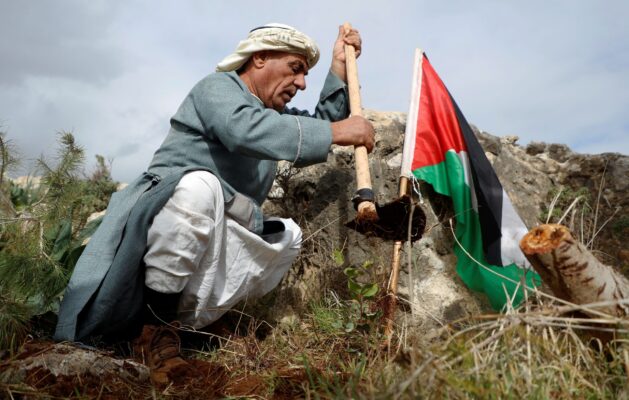Translated From WAFA News: Today, March 30, marks the 49th anniversary of the “Palestinian Land Day,” a momentous event symbolizing the ongoing struggle to protect Palestinian land since 1976. On this day, six Palestinian citizens were killed by Israeli forces, 49 were injured, and more than 300 were abducted during protests against illegal land annexation.
This year’s commemoration comes during one of the bloodiest periods in Palestinian history. Since October 7, 2023, the Gaza Strip has endured a campaign of mass destruction and violence, leading to over 50,277 fatalities, the majority of whom are women and children.
The West Bank, particularly the Jenin and Tulkarm districts, continue to face relentless Israeli aggression for months, resulting in dozens of casualties, extensive injuries, the forced displacement of thousands, and significant destruction of infrastructure and property.
Adding to this crisis are the systematic crimes committed within the Israeli prison system. Since October 7, 2023, approximately 15,700 Palestinians have been abducted in the West Bank, in addition to the thousands detained in Gaza.
According to the latest report from the Wall & Colonization Resistance Commission, Israeli occupation authorities have illegally annexed over 52,000 dunams of Palestinian land since October 2023.
Thirteen military orders have been issued to create buffer zones around illegal colonies, alongside the establishment of 60 new settlement outposts, on stolen Palestinian lands.
The origins of Land Day trace back to 1976, when Palestinian citizens within historic Palestine rose up in defiance against Israeli policies of land appropriation and displacement. This movement, now commemorated as “Land Day,” emerged as a key moment in the collective resistance to these practices.
The protests were triggered by Israeli authorities’ decision to confiscate approximately 21,000 dunams of land from several indigenous Palestinian villages in the Galilee, including Arraba, Sakhnin, Deir Hanna, and others, as part of a plan to empty the area from its native Palestinian citizens. These actions prompted Palestinian residents, particularly those directly affected, to declare a general strike on March 30.
On that historic day, towns and villages across the Galilee and the Triangle Region participated in a general strike.
Israeli authorities responded with force, leading to massive protests, particularly in Sakhnin, Arraba, and Deir Hanna, where six Palestinians were killed—four by army gunfire and two by police fire.
The events of Land Day marked a turning point in the relationship between Palestinian citizens and Israeli authorities. It became the first collective challenge to Israeli policies by Palestinians in the 1948 territories since the Nakba of 1948.
Despite attempts to suppress Palestinian political movements, Land Day has remained a unifying symbol of resistance for Palestinian citizens in their fight for land, identity, and rights.
In recent years, Israeli land confiscation policies have continued unabated. For example, in 2024, Israeli authorities issued 35 military orders to seize approximately 1,073 dunams, five expropriation orders for 803 dunams, and nine state land declarations covering 24,597 dunams.
These actions, part of a systematic policy to expand settlements, further dispossess Palestinians of their lands and resources.
Even 49 years later, the indigenous Palestinian citizens of what is now Israel—whose population has grown from 150,000 in 1948 to 1.3 million today—continue to commemorate Land Day as a defining moment in their history.
It remains a powerful reminder of their enduring attachment to their land and their unwavering resistance to displacement and occupation.

